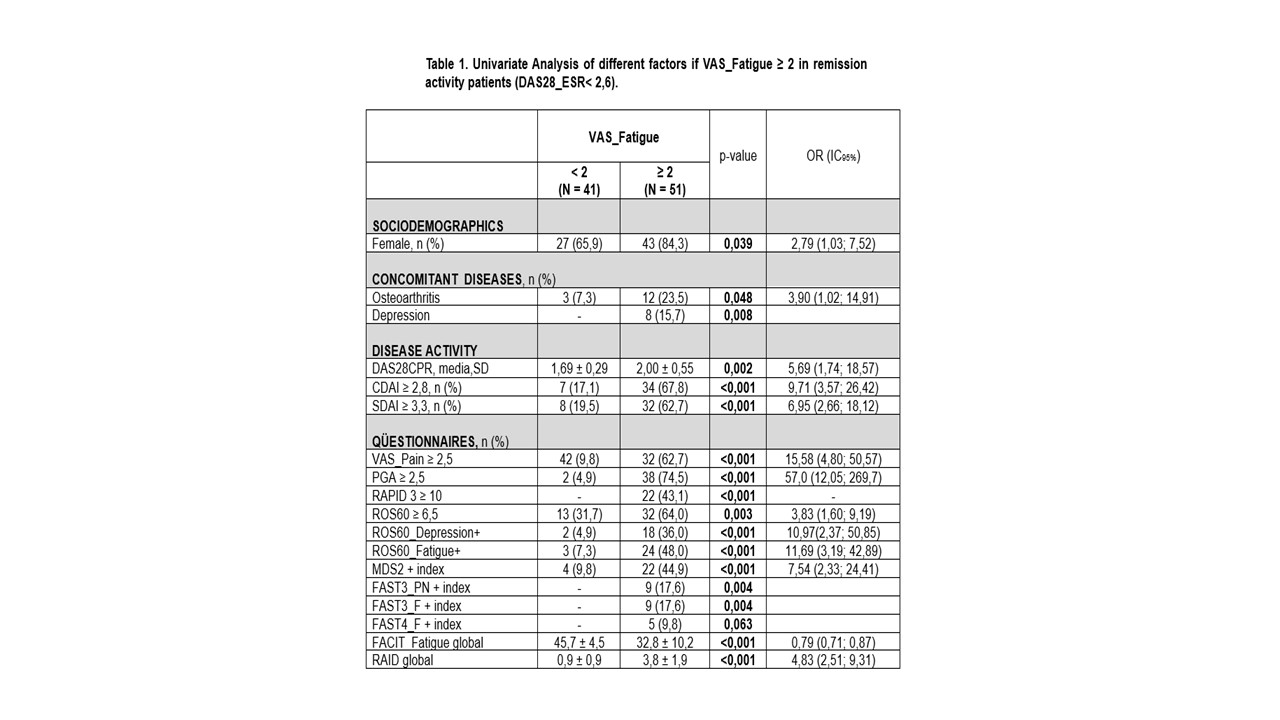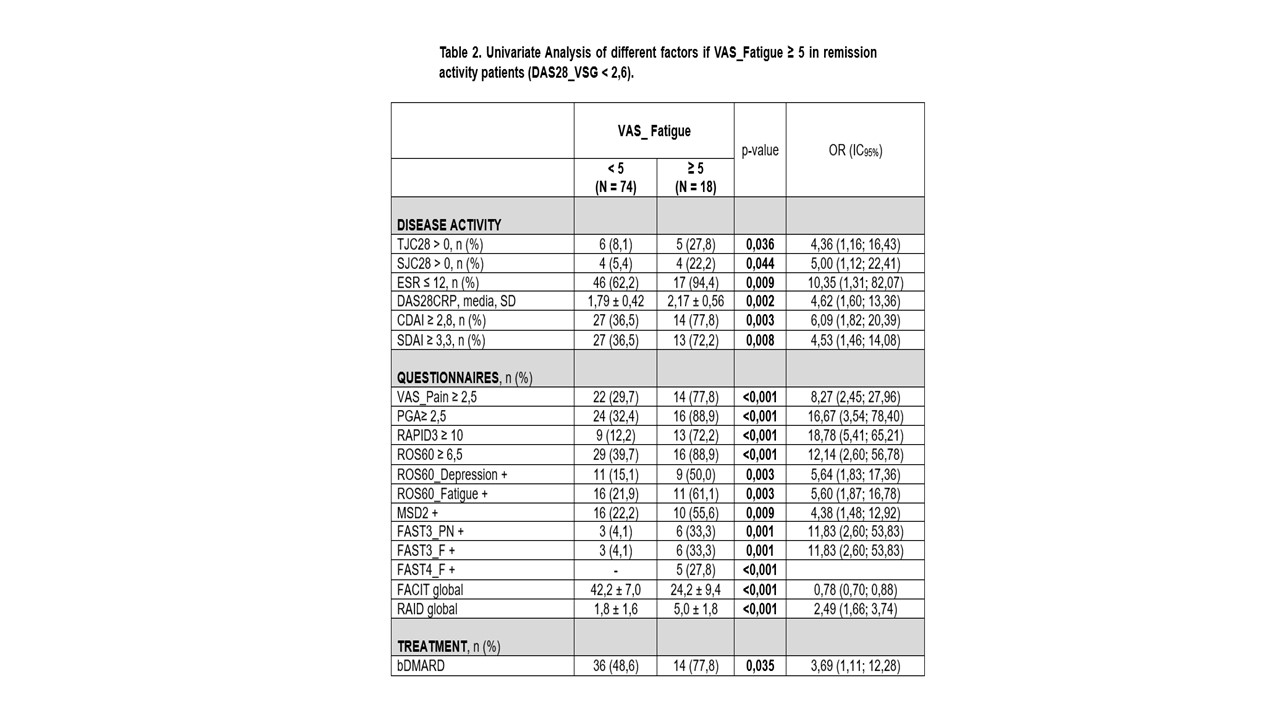Session Information
Session Type: Poster Session A
Session Time: 10:30AM-12:30PM
Background/Purpose: Fatigue is a frequent and annoying symptom in rheumatoid arthritis (RA) patients that is often not assessed at routine follow-up visits. Residual’ fatigue has been described in patients in remission or with low clinical activity, measured with the VAS_Fatigue, at 2 different cut-off points: >2 (presence) and >5 (high level) (1,2).
We study the prevalence and clinical, sociodemographic, laboratory, self-reported patients and therapies associated with fatigue in established RA patients in clinical remission and we compared whether these factors differs according to the severity of fatigue.
Methods: Patients with RA (ACR criteria, 2010), excluding Chronic Fatigue Syndrome, were consecutively collected during periodic visits to different Rheumatology Services distributed throughout the geography of Catalonia (ARCat study group) for 6 months. The patients studied are those in strict clinical remission (DAS28 < 2.6). They were divided into two groups: group F2=fatigue is considered if VAS_Fatigue>2, and group F5=fatigue is considered if VAS_Fatigue>5).
We studied sociodemographics, disease variables (erosive, disease evolution), comorbidities, clinical disease activity (TJC28, SJC28, CDAI, SDAI, and DAS28CRP), laboratory markers (RF, ACPA ESR, and CRP), drug therapy (glucocorticoids or DMARDs) and those obtained from the questionnaires (1.MDHAQ which includes: PGA, VAS_Pain, VAS_Fatigue, Review of 60 symptoms (ROS60), and the integrated indices: RAPID3 (0-30) for activity disease, FAST3 and FAST4 for fibromyalgia, and MSD2 for depression; 2. Global FACIT-Fatigue global; 3. Global RAID).
An univariate analysis of the different factors analyzed were studied according to the degree of fatigue (group F2 and group F5).
Results: Of a total of 243 patients recruited, 39.1% (n=95) were in clinical remission (DAS28ESR< 2.6). The prevalence of ‘residual’ fatigue in F2 is 55,4% (n=51) and in F5 is 19,5% (n=18).
Most of the studied variables associated with fatigue were similar in both groups (F2 and F5). Statistical sexes differences (females, more affected) were observed only in F2. Higher rates of associated osteoarthritis and depression were observed in patients with fatigue in the F2 group, but not in F5 group. Interestingly a positive association with the different clinical activity indices and fatigue were observed in both groups. However, the joint count (TJC28 and SJC28) and ESR were associated with fatigue only in F5. VAS_Pain was higher in fatigated patients of both groups. Significative differences were found for all of the self-reported MDHAQ items (including RAPID3, FAST3, FAST4, and MSD2), RAID global, and FACIT-Fatigue global in both groups (F2 and F5). (Table 1 and 2; only variables with statistical significative differences).
Conclusion: Residual´ fatigue should be taken into account because of its prevalence in RA patients in strict clinical remission. Similar clinical factors are associated in the study with mild and severe fatigue, but inflammatory activity seems to play an important role in cases of severe fatigue.
References:
1.Tournadre A, et al. Joint Bone Spine 2019.
2.Pollard L.C, et al. Rheumatology 2006.
To cite this abstract in AMA style:
Morlà Novell R, Frade-Sosa B, Tobalina Maestre L, Sallés Lizarzaburu M, Ruiz-Esquide V, López Lasanta M, Salvador Alarcón G, Busquets Pérez N, Valls Roc M, Gonzalez Dávila E, Gomez-Puerta J, Sanmartí Sala R. Residual’ Fatigue and Its Severity in Patients with Rheumatoid Arthritis in Clinical Remission: Prevalence and Associated Factors [abstract]. Arthritis Rheumatol. 2024; 76 (suppl 9). https://acrabstracts.org/abstract/residual-fatigue-and-its-severity-in-patients-with-rheumatoid-arthritis-in-clinical-remission-prevalence-and-associated-factors/. Accessed .« Back to ACR Convergence 2024
ACR Meeting Abstracts - https://acrabstracts.org/abstract/residual-fatigue-and-its-severity-in-patients-with-rheumatoid-arthritis-in-clinical-remission-prevalence-and-associated-factors/


